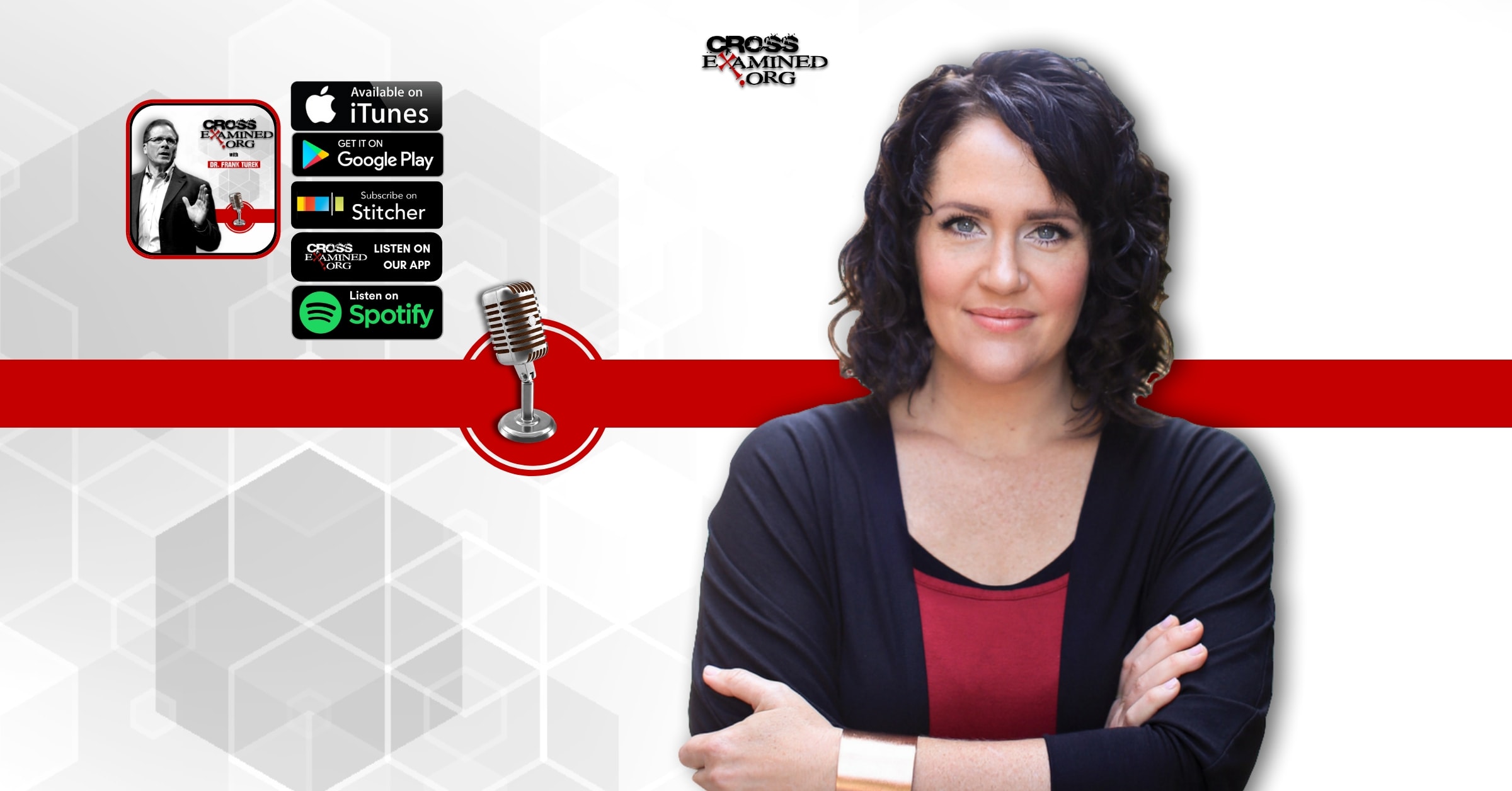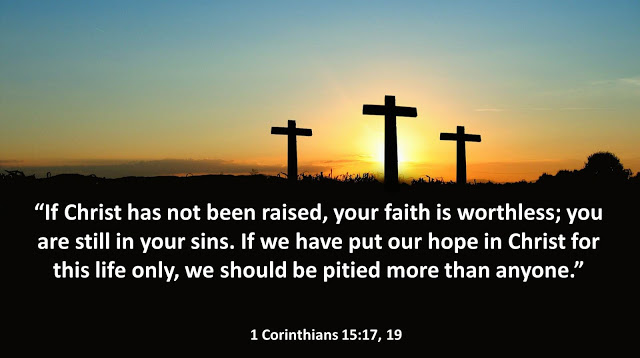By Erik Manning
Sometimes you gotta make an apologetic for apologetics. Often well-meaning Christians spout off pious-sounding platitudes like “faith isn’t based on reason, that’s why it’s called faith,” or “God doesn’t need us to defend him, just preach the gospel.” That sounds spiritual, but it isn’t biblical. That’s not the way Jesus operated, and that’s not the way the early church operated either.
Here I list off some verses and various passages that demonstrate that apologetics is one of the most biblical and spiritual things you can be involved in:
- 1 Peter 3:15-16“But in your hearts revere Christ as Lord. Always be prepared to give an answer to everyone who asks you to give the reason for the hope that you have. But do this with gentleness and respect, keeping a clear conscience, so that those who speak maliciously against your good behavior in Christ may be ashamed of their slander.”
This is every apologists’ “go-to” verse when defending the purpose of apologetics, and for a good reason. While not everyone is called to be a full-time minister, (Ephesians 4:11), Peter says that every Christian is called to give a reason for their hope in Christ. , Don’t leave out the “gentleness and respect” part!
- Jude 3“Dear friends, although I was very eager to write to you about the salvation we share, I felt compelled to write and urge you to contend for the faith that was once for all entrusted to God’s holy people.”
Jude was writing to believers who were surrounded by heretics teaching the original “Hyper-Grace” message. In other words, they were saying grace means the moral law goes out the window. Sadly, we see a lot of that message resurfacing today. Jude urged them to be able to defend the original teaching handed down from the apostles. (Romans 6:1-2)
- Titus 1:9“He must hold firmly to the trustworthy message as it has been taught so that he can encourage others by sound doctrine and refute those who oppose it.”
Paul is giving a checklist of qualifications for pastors. Pastors should not only able to teach sound doctrine but also able to refute those who oppose it. Pastors need apologetics as much as believers — if not more so — since it’s their job to help protect the flock against false teaching.
- 2 Timothy 2:24-26“And the Lord’s servant must not be quarrelsome but must be kind to everyone, able to teach, not resentful. Opponents must be gently instructed, in the hope that God will grant them repentance leading them to a knowledge of the truth, and that they will come to their senses and escape from the trap of the devil, who has taken them captive to do his will.”
Here again, Paul is instructing ministers to be able to not only teach but to also be able to give a gentle answer to those who oppose the truth. We see here that apologetics can play a role in bringing people to repentance.
- Jude 22“Be merciful to those who doubt…”
For believers battling intellectual doubts, apologetics can be great mercy and help save their faith. We don’t want to offer pat answers. I know of several believers that can testify that studying apologetics during seasons of doubt saved their faith. We see that principle in action in the ministry of Jesus. That leads me to my next passage:
- Luke 7:19-22“When the men came to Jesus, they said, “John the Baptist sent us to you to ask, ‘Are you the one who is to come, or should we expect someone else?’” At that very time, Jesus cured many who had diseases, sicknesses, and evil spirits, and gave sight to many who were blind. So he replied to the messengers, “Go back and report to John what you have seen and heard: The blind receive sight, the lame walk, those who have leprosy are cleansed, the deaf hear, the dead are raised, and the good news is proclaimed to the poor. Blessed is anyone who does not stumble on account of me.”
John the Baptist was imprisoned by Herod and was sitting on death row. He previously baptized Jesus and identified him as the Messiah, but now that things were looking grim. John was wondering if he made the greatest life choices. He sent some disciples to get an answer from Jesus, and Jesus didn’t reply with a “just have faith” type of cliché. He pointed to the evidence from his miracles and fulfilled prophecy. Jesus had mercy on doubters. He repeatedly used his miracles as evidence of his identity. (see also John 5:36, John 10:37-38, John 14:11)
- Isaiah 48:5“Therefore I told you these things long ago; before they happened, I announced them to you so that you could not say, ‘My images brought them about; my wooden image and metal god ordained them.”
I love this verse because here God throws down the gauntlet. Can your idols predict the future? Can they declare the end from the beginning? Yeah, I didn’t think so. The apostles repeatedly used the argument from fulfilled prophecy in identifying Jesus. Just read the Gospels or any of the sermons in Acts preached to a Jewish audience.
- Acts 19:8-10“Paul entered the synagogue and spoke boldly there for three months, arguing persuasively about the kingdom of God. But some of them became obstinate; they refused to believe and publicly maligned the Way. So Paul left them. He took the disciples with him and had discussions daily in the lecture hall of Tyrannus. This went on for two years so that all the Jews and Greeks who lived in the province of Asia heard the word of the Lord.”
Some people in the modern church will tell you that you can’t reason or argue someone into the kingdom of God. They’ll teach that if you’re just a nice person, then people will eventually give you the time of day. That’s not the way Paul operates,d. He proactively went into the synagogues and used his ability to persuade from the Bible that Jesus was the long-awaited Messiah. Acts 17:2-4 says this was his custom.
What really sticks out to me is that when some of the Jews turned on Paul, he set up shop in a lecture hall and had an open forum for the next two years until everyone in the area heard the gospel. Daily discussions indicate that Paul wasn’t just preaching at people; he was having some conversations over spiritual things with whoever was willing. This sounds an awful lot like debates, which leads me to my next (and possibly favorite) passage on apologetics.
- Acts 18:27-28“When Apollos wanted to go to Achaia, the brothers and sisters encouraged him and wrote to the disciples there to welcome him. When he arrived, he was a great help to those who by grace had believed. For he vigorously refuted his Jewish opponents in public debate, proving from the Scriptures that Jesus was the Messiah.”
Have you ever watched a great debater, like John Lennox or William Lane Craig and feel like “Wow! I just had church!”? You probably came away feeling strengthened after witnessing the other sides’ arguments fall apart like a Chinese motorcycle while the Christian side came out smelling like a rose, even after tough scrutiny. Luke, by the Holy Spirit, calls this great help to the believer. And I think that’s pretty awesome. Apologetics can help persuade skeptics, but it also builds up the church.
- 2 Corinthians 10:5“We demolish arguments and every pretension that sets itself up against the knowledge of God, and we take captive every thought to make it obedient to Christ.”
Believers often apply this verse to guarding their own thought life. I’m not at all saying that’s wrong, but that’s not the actual context of the verse. Paul was concerned over the Corinthians being taken up with apostles who were flashy but empty talkers. He was saying that through the wisdom of God, he’d destroy their arguments. (Sounds like Paul would have made it in a lot of YouTube clips a la Ben Shapiro if he were alive today. I can see it now…. Paul of Tarsus DESTROYS and RIPS TO SHREDS religious opponent with LOGIC and FACTS)
Apologetics is a major way of doing spiritual warfare. It’s being able to deconstruct arguments and pretentious arguments that trip people up and keep them out of the kingdom.
- Colossians 2:8 “See to it that no one takes you captive through hollow and deceptive philosophy, which depends on human tradition and the elemental spiritual forces of this world rather than on Christ.”
CS Lewis famously said “Good philosophy must exist, if for no other reason, because bad philosophy must be answered… The learned life then, is for some, a duty.” We are in a war with the hallow and deceptive philosophies of our time: Relativism, religious pluralism, nihilism, naturalism, scientism, critical theory, Marxism, – you name it, it’s all out there. These things have a major impact on individuals and our society. Our job is to give the world a real alternative.
- Luke 1:1-4 “Many have undertaken to draw up an account of the things that have been fulfilled among us, just as they were handed down to us by those who from the first were eyewitnesses and servants of the word. With this in mind, since I myself have carefully investigated everything from the beginning, I too decided to write an orderly account for you, most excellent Theophilus, so that you may know the certainty of the things you have been taught.”
Luke’s not writing fairy tales or folklore here. He interviewed eyewitnesses. He carefully investigated everything and being meticulous with his research. He’s writing as a historian giving a thorough report so that our confidence in what we believed would be increased.
- 2 Peter 1:16“For we did not follow cleverly devised stories when we told you about the coming of our Lord Jesus Christ in power, but we were eyewitnesses of his majesty.”
Similar to Luke’s prologue, Peter isn’t spinning some pious myths or fables here. His message was based on what he was an eyewitness to.
- 1 John 1:1-3 “That which was from the beginning, which we have heard, which we have seen with our eyes, which we have looked at and our hands have touched—this we proclaim concerning the Word of life. The life appeared; we have seen it and testify to it, and we proclaim to you the eternal life, which was with the Father and has appeared to us. We proclaim to you what we have seen and heard, so that you also may have fellowship with us.”
John is encouraging a church that is going through a rough time. Some believers were abandoning their faith in Jesus because of the prevailing Greek philosophy around them that taught that the flesh is bad and spirit is good. Considering Jesus was resurrected in the flesh, this was a big problem. He appeals to them by the truth of Christ that he experienced with his own senses. He wasn’t preaching a spiritual, shadowy Jesus.
- 1 Corinthians 15:3-8 “For what I received I passed on to you as of first importance: that Christ died for our sins according to the Scriptures, that he was buried, that he was raised on the third day according to the Scriptures, and that he appeared to Cephas, and then to the Twelve. After that, he appeared to more than five hundred of the brothers and sisters at the same time, most of whom are still living, though some have fallen asleep. Then he appeared to James, then to all the apostles, and last, of all, he appeared to me also, as to one abnormally born.”
The central claim of the gospel is Christ has been raised. If Christ isn’t raised, Paul says the whole Christian faith is a bad joke and a waste of time. (1 Corinthians 15:14, 1 Corinthians 15:17) Here Paul passes on a creed he was given by other believers before him that list off a host of resurrection appearances to individuals and groups. This creed has become the linchpin for most arguments for the historicity of the resurrection.
- Romans 1:18-20 “The wrath of God is being revealed from heaven against all the godlessness and wickedness of people, who suppress the truth by their wickedness since what may be known about God is plain to them because God has made it plain to them. For since the creation of the world God’s invisible qualities—his eternal power and divine nature—have been clearly seen, being understood from what has been made, so that people are without excuse.”
We know from Paul’s sermon on Mars Hill (Acts 17:21-32) that he appealed to nature and their own moral intuitions. Here Paul says there’s some revelation freely available to everyone, so much so that they have no excuse. The word excuse is “apologia,” which is the same word we get apologetics from. In other words, unbelievers have no defense for their rejection of God.
- Psalm 19:1-4 “The heavens declare the glory of God; the skies proclaim the work of his hands. Day after day they pour forth speech night after night they reveal knowledge. They have no speech; they use no words; no sound is heard from them. Yet their voice goes out into all the earth, their words to the ends of the world.”
This might be the passage that Paul had in mind when he said the truth of God is evident to everyone through creation. The very existence of an orderly, fine-tuned universe created in the finite past speaks volumes, and you really have to plug your ears to say that it came about through purely natural processes.
- Colossians 4:5-6“Be wise in the way you act toward outsiders; make the most of every opportunity. Let your conversation be always full of grace, seasoned with salt, so that you may know how to answer everyone.”
As believers, we are to make the most of every opportunity we get with people outside the faith and graciously know how to answer their worldview.
- Philippians 1:16 “…I am put here for the defense of the gospel.”
It’s interesting to note here that Paul was writing this letter from prison. He used the words rejoice and joy over and over, and he says he’s there for the defense of the gospel. Even being put in a dirty, dark prison wasn’t going to stop Paul from proclaiming and defending the Gospel with joy. He knew his purpose. It’s always to remind yourself why you are put here.
Bonus: To see apologetics in action, read Mark 12:12-37. Jesus was asked tricky questions from his opponents. Using logic, reason, Scripture, he left his critics speechless. Jesus was an intellectual heavyweight. He didn’t shy away from debate and “just preach the gospel.”
While this list isn’t completely comprehensive, I hope it helps you see the importance of apologetics and gets you motivated to get involved!
Erik Manning is a former atheist turned Christian after an experience with the Holy Spirit. He’s a freelance baseball writer and digital marketing specialist who is passionate about the intersection of evangelism and apologetics.
Original Blog Source: http://bit.ly/2IW4qXO











